Thursdays (1)
Tilda Swinton: Shape-Shifting Sylph of the Silver Screen
Programmed by Ursula Wagner
Essay by Ursula Wagner
When Tilda Swinton walked onstage to collect her Best Supporting Actress Oscar for Michael Clayton in 2008, she wore no visible makeup, a boyish haircut, and a dress that commentators compared to a giant black garbage bag. In her acceptance speech, she immediately announced that she would be giving the statuette to her agent “because there’s no way I would be in America – at all, ever, on a plane – if it wasn’t for him.” This moment encapsulates the confounding essence of Swinton. At the height of her mainstream success, having finally been embraced by Hollywood, she appeared to have no interest in conforming to its standards of beauty and gender, nor in holding onto the most coveted accolade it could bestow upon her.
Prior to that nomination, Swinton had already had a long career and was especially known within art-house circles as having been muse to queer Avant-garde filmmaker Derek Jarman starting in 1986. Jarman died of AIDS in 1994, but because of him other filmmakers became aware of her and began casting her as well. One of the first to do so was writer-director Sally Potter, who found her to be the perfect choice for the title character in Orlando (1992) due to the "profound subtlety about the way she took on male body language and handled maleness and femaleness."
In this film, Orlando is a young Elizabethan nobleman who halfway through the story transforms overnight into a noblewoman. The role both appealed to and reified Swinton’s lifelong interest in gender fluidity. Of her own gender during childhood, she has said, “I don’t know if I could ever really say that I was a girl - I was kind of a boy for a long time. I don’t know, who knows? It changes.” Regarding her adult identity, Swinton names her own father and David Bowie among her style icons, but told an interviewer in 2009, “It’s a very personal matter. I can categorically say that as Orlando does in the film: Yes, I’m probably a woman.”
Orlando was an art-house favorite, and for years Swinton continued to act in mostly indie and art films not widely seen. She drew perhaps greater attention as a performance artist, in 1995 sleeping for a week on public display in a glass case at an art gallery in London.
But after the 1990s, Swinton finally captured mainstream attention with The Deep End (2001). Oscar buzz surrounded her performance, and although she was snubbed when it came to Academy Award nominations, she did receive a Golden Globe nomination for Best Actress. That turn perfectly positioned Swinton for Hollywood success if she wanted it, but she has made it clear that she does not. Of the Hollywood system she has said, “I’m a tourist there. It’s a very interesting place to visit but I’m from another planet.”
One way Swinton tends to differ from other actors is her level of involvement in the creation of the films she stars in. She has said she does not choose projects, she chooses people. And once she chooses a person, she tends to spend years working closely with them to develop a project she is truly passionate about. Swinton spent five years developing Orlando with Sally Potter, five years on Julia (2008) with Erick Zonca, 11 on I Am Love (2009) with Luca Guadagnino, five on We Need to Talk about Kevin (2011) with Lynne Ramsay, and 10 on Only Lovers Left Alive (2013) with Jim Jarmusch. When she met Bong Joon-Ho, he was already making Snowpiercer (2013), and so the two of them worked together to invent a character for her. In this manner, Swinton sees herself more as a creator of these roles than an actor in them. She describes the process of creating a character with a director as akin to having to having a baby with them.
When Swinton has accepted roles in more mainstream movies, it has only been when the offer comes from a director she genuinely likes. She readily worked with Adam Adamson on The Chronicles of Narnia (2005) and Tony Gilroy on Michael Clayton (2007), and she has expressed happiness that the studio system is hiring them. Still, she considers these movies “away games.” Rather than spending years developing a film or a character with these directors, she shows up on their set and does the acting they are paying her to provide.
It is ironic that she has won her only acting Oscar for one of these roles she sees as devoid of any creative process. She explained that until the night she won, she had never seen the Oscars and did not understand what they were or their cultural importance, but she is deeply grateful for the clout they could give her to make the projects she wants to.
In this retrospective, we explore and celebrate Swinton’s ability to get those projects made – to play within the system at the times of her choosing while still floating outside of it and maintaining artistic control over her career. We trace her post-Jarman life as she shape-shifts through the roles and genres that take her interest. We know she delights in being so camouflaged by makeup that critics fail to recognize her, as in Snowpiercer, Grand Budapest Hotel (2014), and Trainwreck (2015). We know she enjoys playing with gender on both ends of the spectrum; of the sexy, curvaceous, feminine character she played in Julia, she says, “For me, Julia is a female impersonator.” In her words, Swinton loves “walking the tightrope of identity, of sexual identity, of gender identity. I’m happy to keep swinging it.” We love it too, and we invite you to join as we watch her push the boundaries of what acting can be.
This series was supported by the Nicholson Center for British Studies

2016-01-07 @ 7:00 PM
Orlando
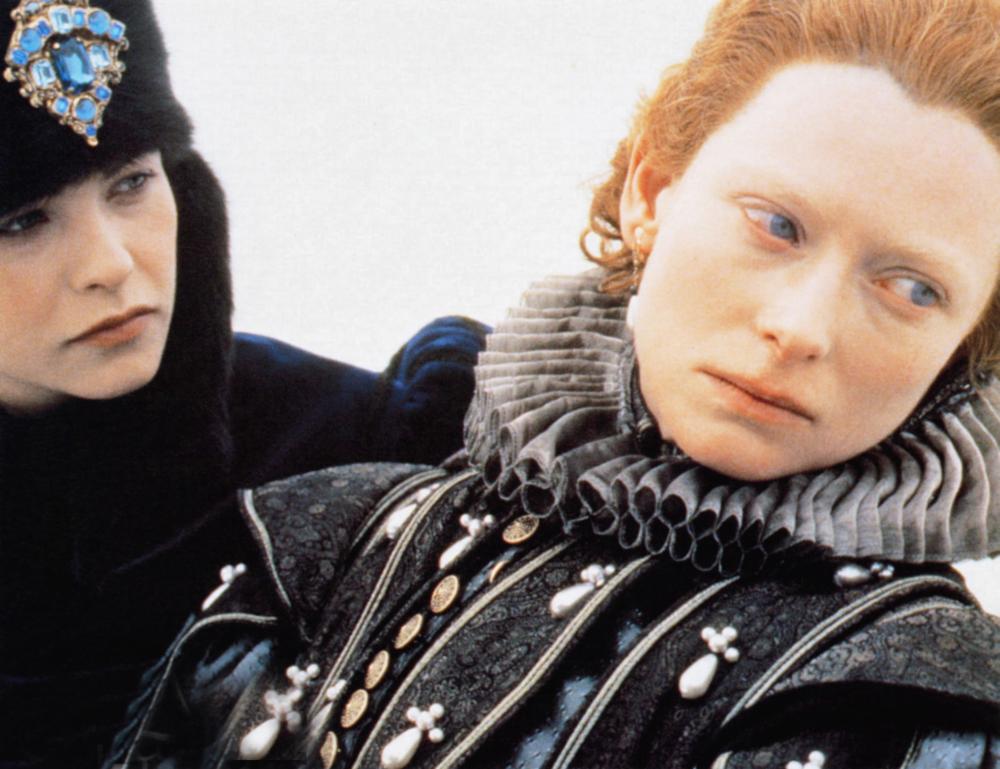
(Sally Potter, 1992) · Writer-director Potter was told an adaptation of Virginia Woolf’s novel was “unmakeable, impossible, far too expensive, and anyway not interesting.” She made it anyway, casting Swinton in a role that perfectly suited her androgyny and earned her a slew of acting nominations. Orlando is a young nobleman commanded by Queen Elizabeth to never grow old. He complies but one day wakes up as “the same person, no difference at all—just a different sex.”
runtime: 94 min format: 35mm
2016-01-14 @ 9:00 PM
The Chronicles of Narnia: The Lion, the Witch, and the Wardrobe
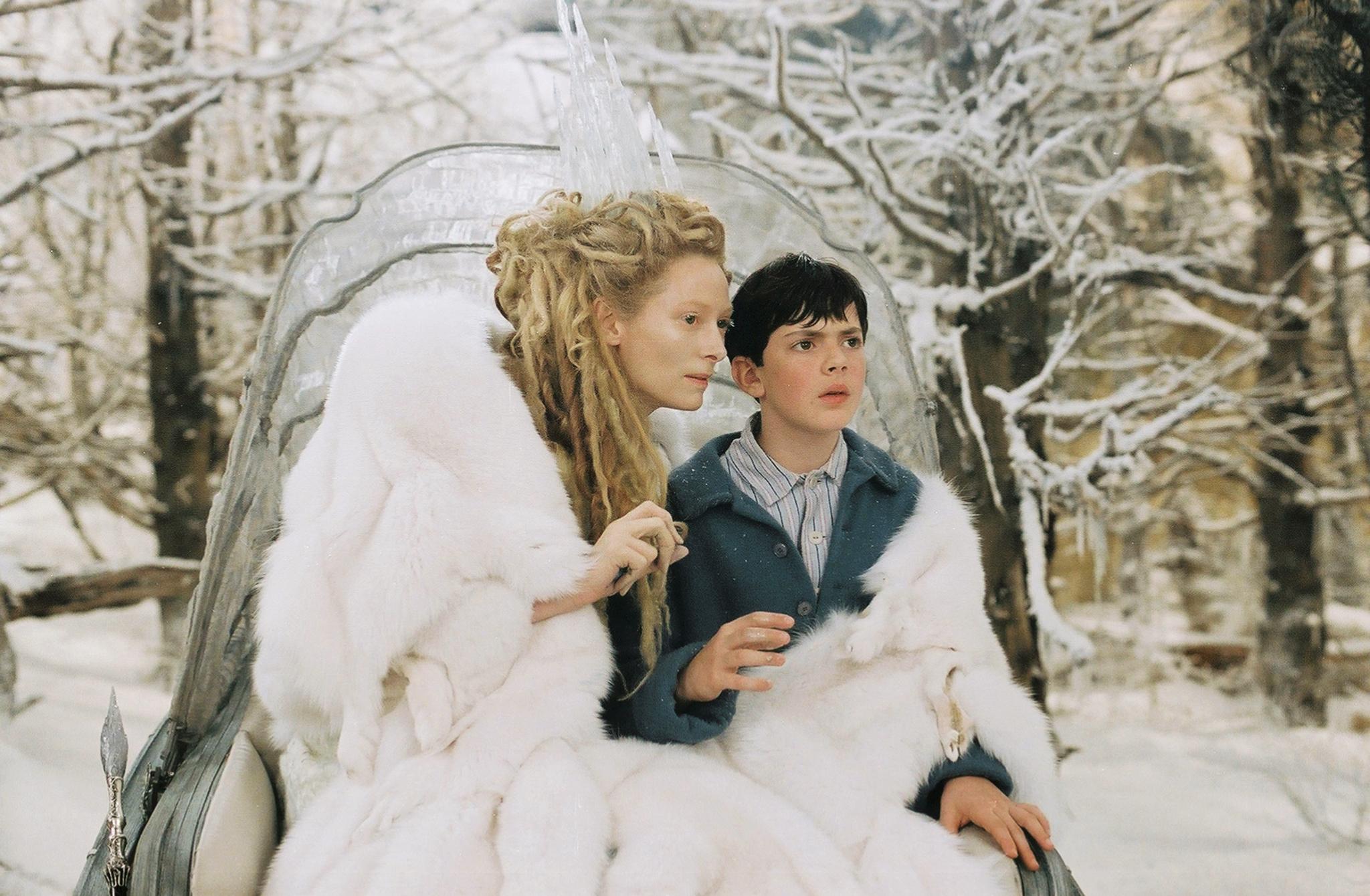
(Andrew Adamson, 2005) · C.S. Lewis’s beloved Christian allegorical children’s story, adapted with 21st-century production values, tells of four British children sent to live in the countryside during the Blitz. There they discover a wardrobe that leads to the magical world of Narnia where the evil White Witch (Swinton) holds the land in eternal winter. Rediscover this epic saga of talking fauns, Cockney beavers, and that resplendent, Liam Neeson-voiced lion—Aslan.
runtime: 143 min format: 35mm
2016-01-21 @ 7:00 PM
The Deep End
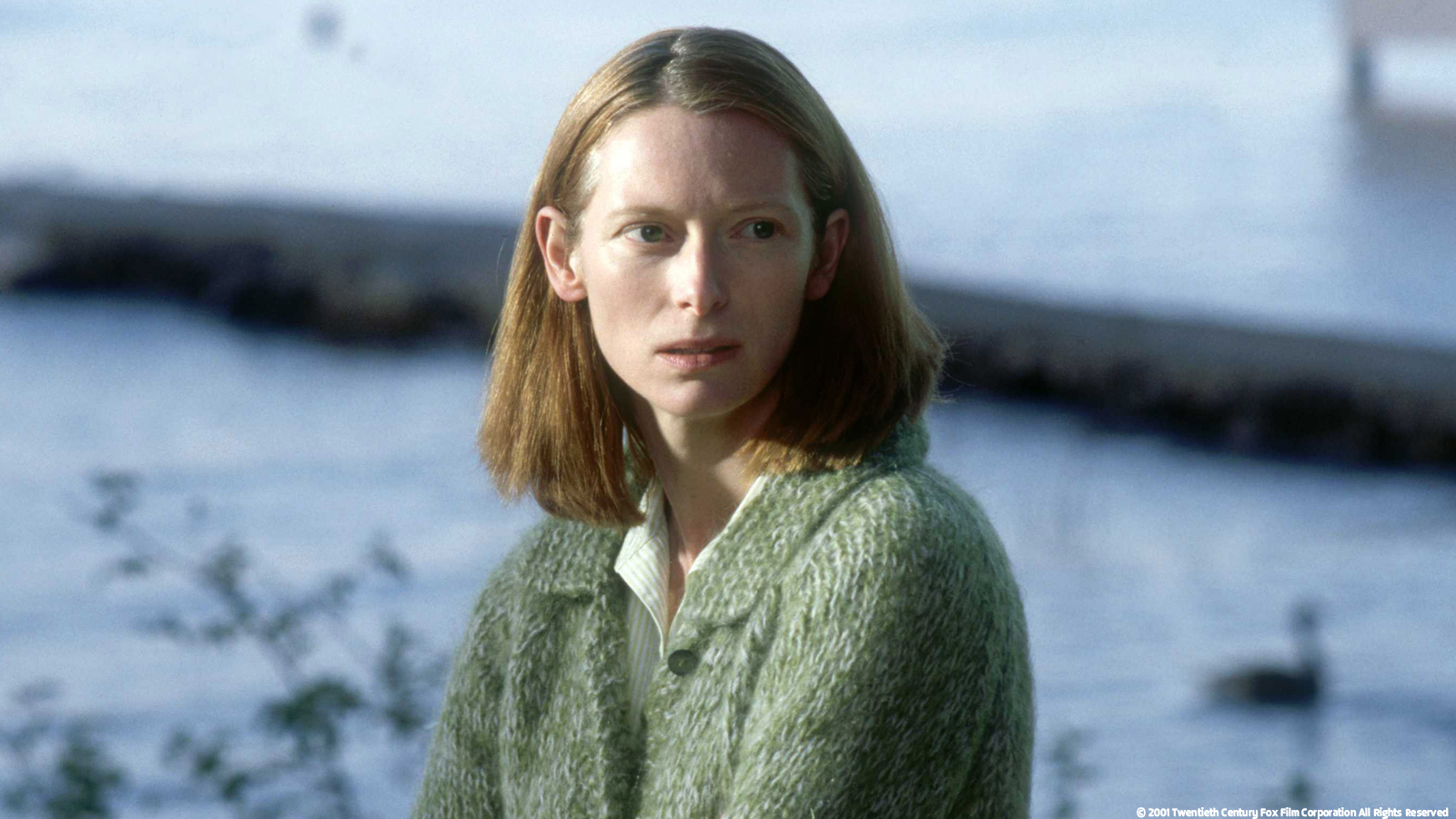
(Scott McGehee & David Siegel, 2001) · In an adaptation of Elisabeth Sanxay Holding’s 1947 novel, Swinton plays an ordinary mom whose maternal instincts lead her to cover up a possible murder by her teenage son. She’s soon blackmailed with a sex tape of the son, and things only get worse from there. This neo-noir put Swinton on Hollywood’s map, and critics expected her portrait of this most desperate of all housewives to earn her an Oscar nod, but that wouldn’t come for another six years.
runtime: 101 min format: 35mm
2016-01-28 @ 7:00 PM
Michael Clayton
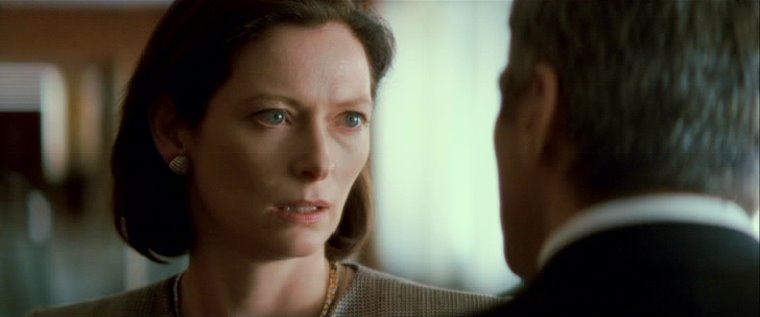
(Tony Gilroy, 2007) · Michael Clayton (George Clooney) cleans up messes for clients of a high-end law firm. Karen Crowder (Swinton) works for one of those clients, U-North, a corporation bearing a non-coincidental resemblance to Monsanto. But as Michael learns more about U-North’s shady dealings, Karen goes to increasingly deadly lengths to shake him off. Swinton plays Karen with a mix of panic and ruthlessness that finally won her an Oscar for Best Supporting Actress.
runtime: 119 min format: 35mm
2016-02-04 @ 7:00 PM
Julia
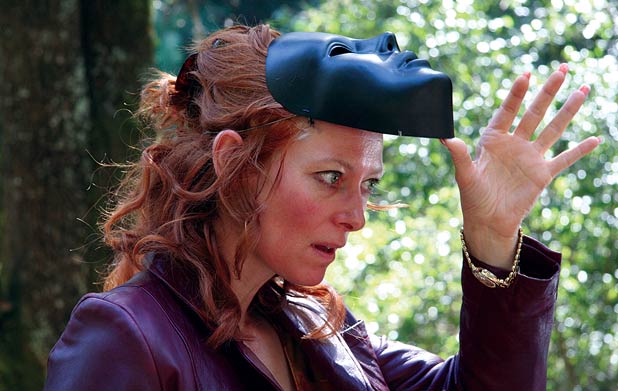
(Erick Zonca, 2008) · In this homage to Cassavetes’ Gloria, Swinton stars as Julia, an alcoholic mess who blacks out every night and wakes up with a different man the next morning. After losing yet another job, she resorts to crime to make some cash, accepting $50,000 to kidnap her neighbor’s son from his drug lord grandfather. From there her attempts to extort and double-cross everyone in her path could not be more disastrous, and we could not be more riveted.
runtime: 144 min format: DVD
2016-02-11 @ 7:00 PM
I am Love
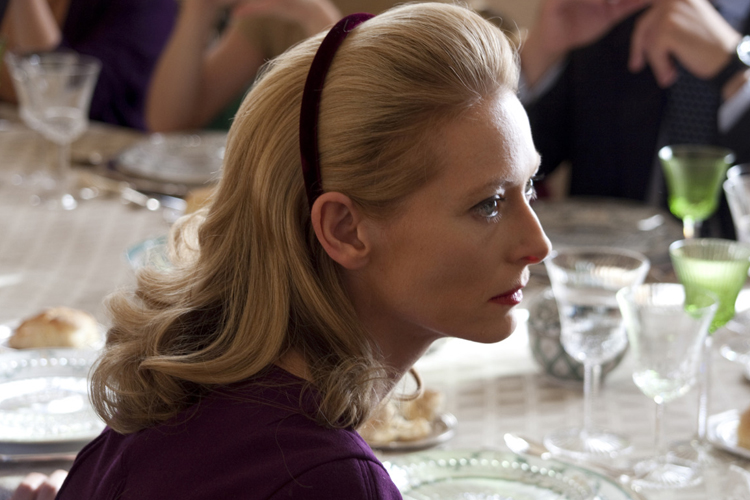
(Luca Guadagnino, 2009) · Swinton and director Guadagnino developed this film from scratch over 11 years, and their attempt to revive classical melodrama results in a love story that is lush yet very simple. At the center of the colorful costumes, Italian scenery, and sensuous food is Emma (Swinton), the Russian wife of an Italian aristocrat. Inspired by her daughter’s coming out, she too opts to follow her heart and begins a brutally passionate affair with a young chef.
runtime: 120 min format: 35mm
2016-02-18 @ 7:00 PM
Snowpiercer
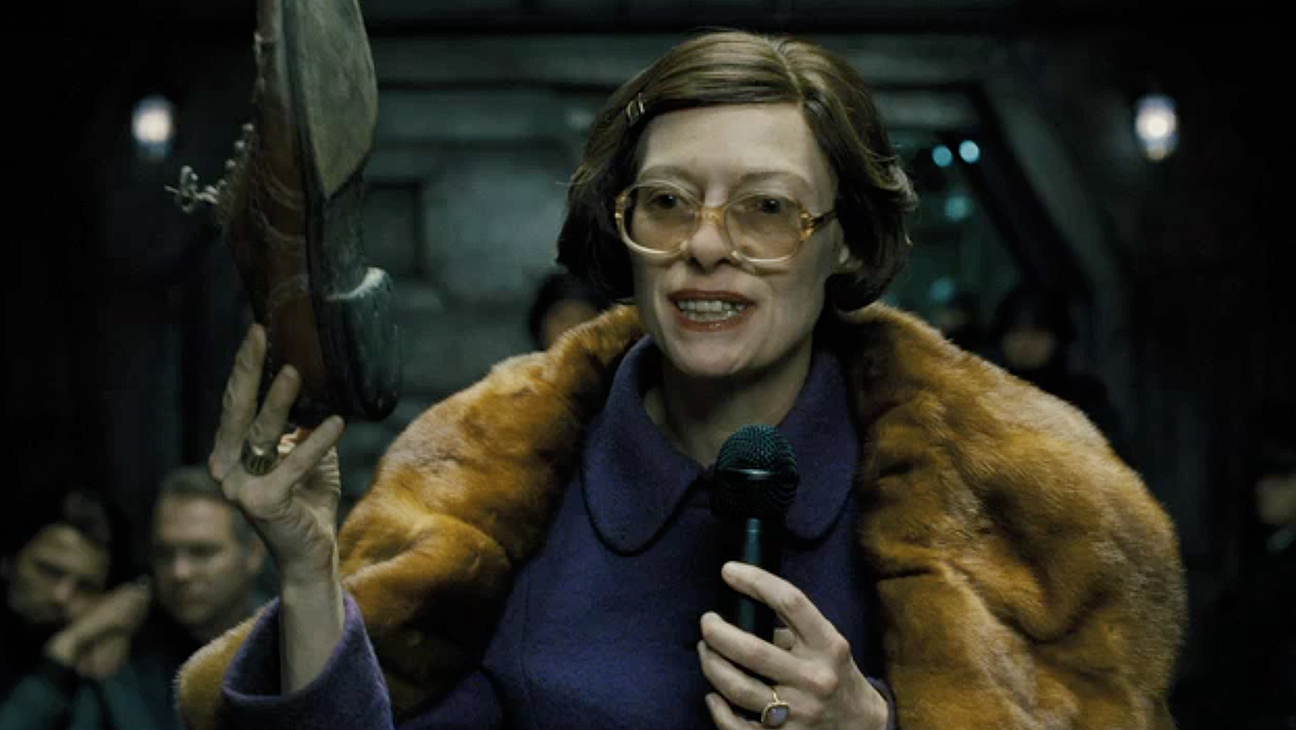
(Bong Joon-Ho, 2013) · Global warming has destroyed most of the world, and the last of humanity lives on a bullet train in perpetual motion around the globe.The train’s proletariats led by Curtis (Chris Evans) are staging a revolution—battling car by car to overtake the engine room. In a role written for a man, Swinton plays the train’s deputy minister determined to crush them as a self-described mix of “Margaret Thatcher, Col. Gaddafi, Adolf Hitler and Silvio Berlusconi.”
runtime: 126 min format: 35mm
2016-02-25 @ 7:00 PM
Only Lovers Left Alive

(Jim Jarmusch, 2013) · Jarmusch’s eleventh feature is a "crypto-vampire love story” scored mostly by his own band, SQÜRL. Tom Hiddleston (the Avengers’ Loki) and Tilda Swinton are aging bohemian vampires. Hiddleston, a depressive musician living in Detroit, contemplates suicide. Swinton, his wife, catches a redeye from Tangiers to cheer him up. As undead hipsters they wander the night lamenting the end of LPs and the Motor City, as well as the poisoning of their blood supply.
runtime: 123 min format: 35mm
2016-03-03 @ 7:00 PM
We Need to Talk About Kevin
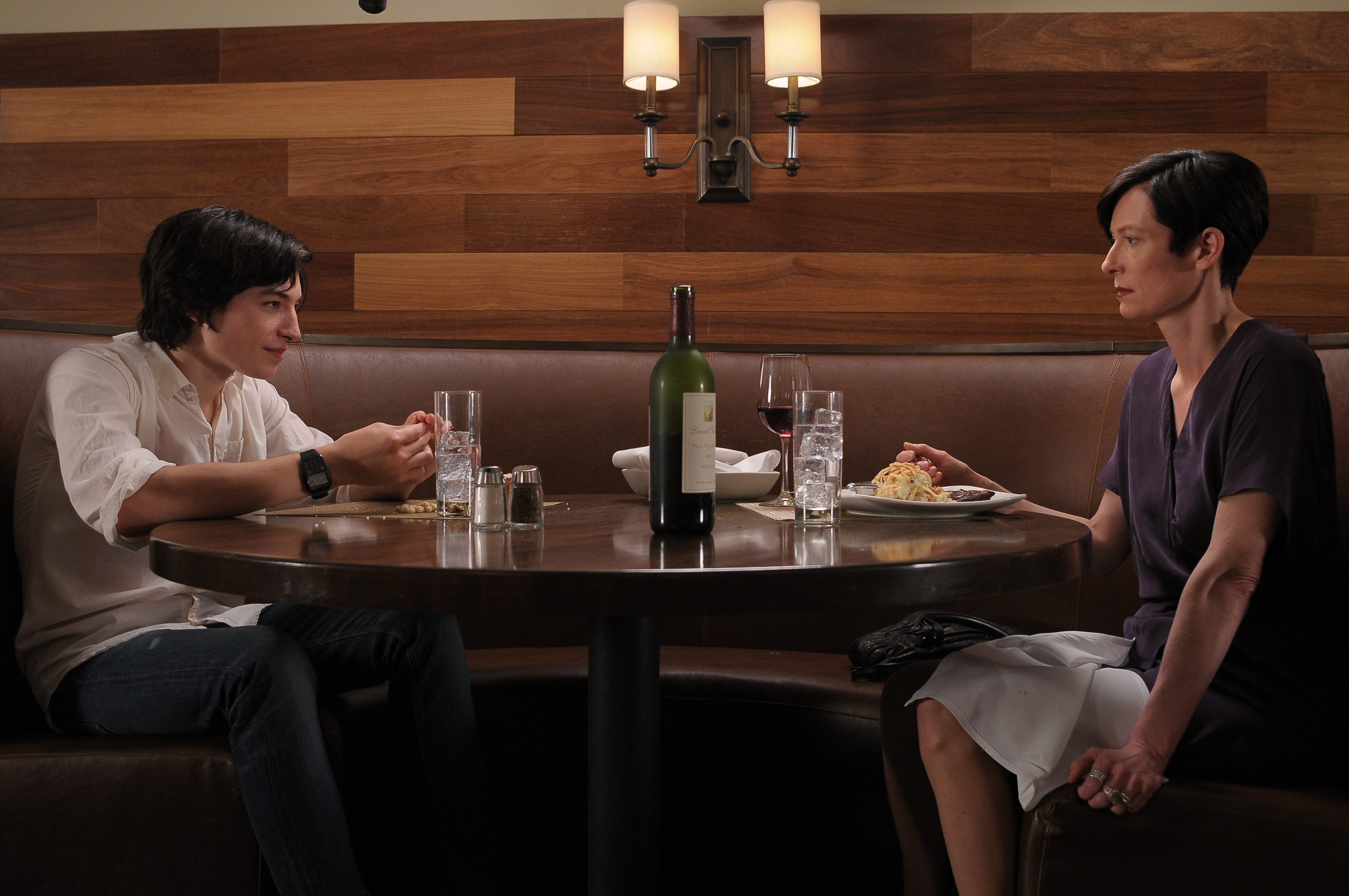
(Lynne Ramsay, 2011) · As Kevin (Ezra Miller) sits in juvenile prison after massacring his classmates, his mother Eva (Swinton) examines her life with him in flashbacks leading up to this parental worst nightmare. Adapting Lionel Shriver’s novel, writer-director Ramsay doesn’t exploit her subject matter; she empathically portrays Eva’s difficulty with motherhood and explores what might lead to a sociopathic child, at the same time giving us a truly chilling horror film.
runtime: 112 min format: 35mm



